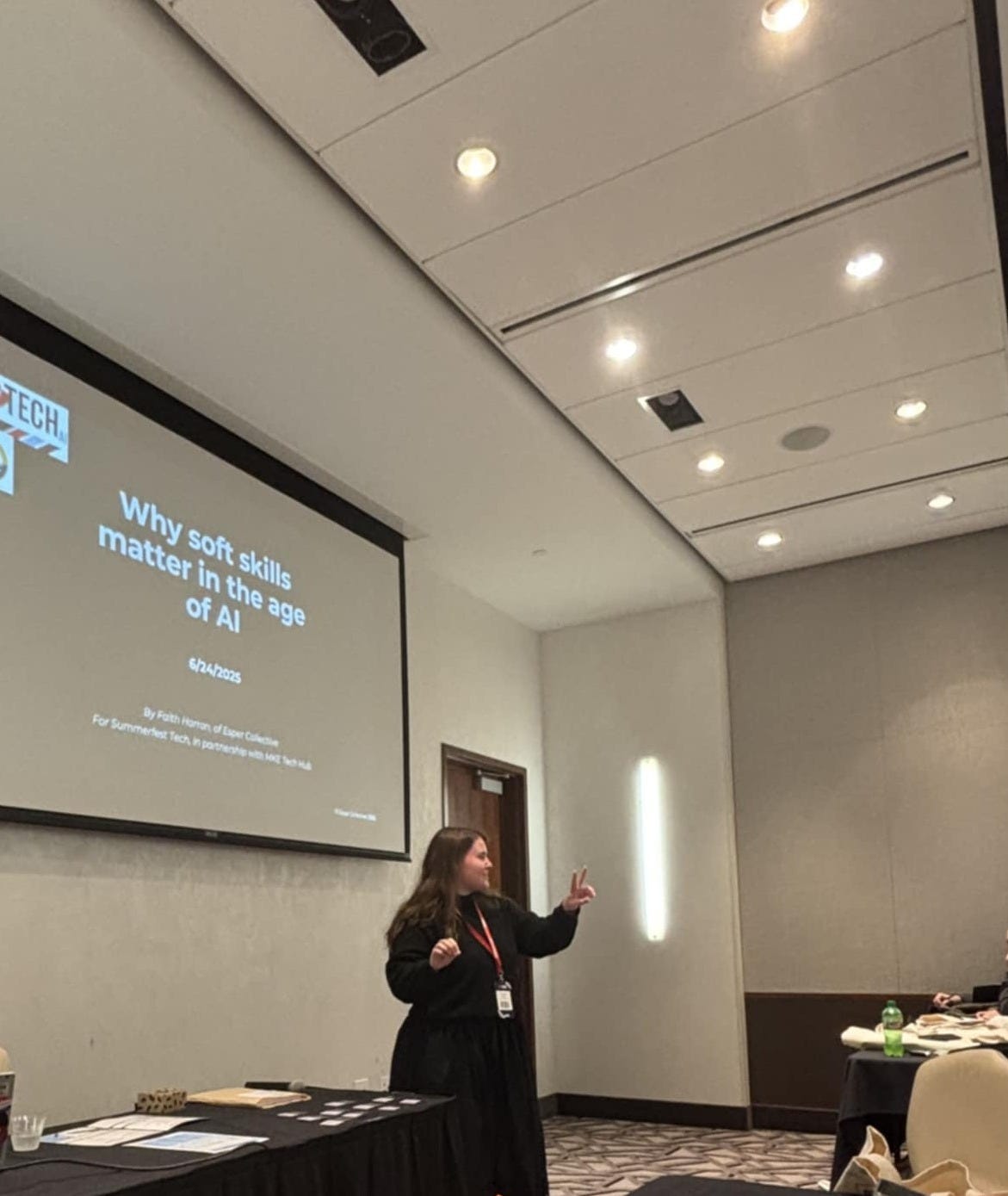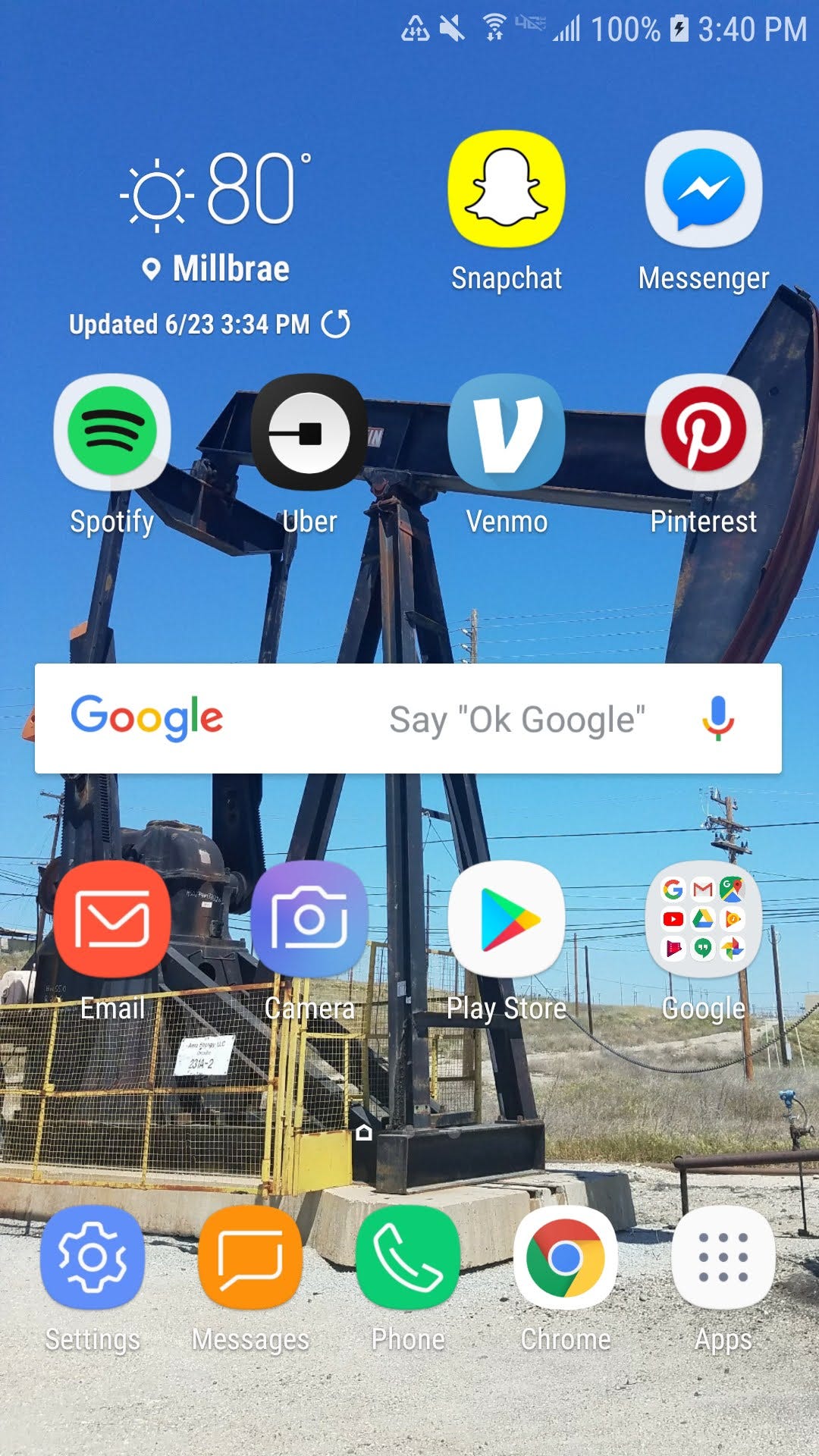If life had a fast-forward button, would you use it?
A friend and I used to play a game that (in retrospect) makes me much sadder than it did at the time.
For today’s story, I’m taking you for a quick jaunt back in time to my university experience.
The game my friend and I played (and invented) prominently featured what we called the fast forward button, a magical invention that would skip you forward in time however much you wanted. The only catch was that any time you skipped would be lost – you wouldn’t have experienced anything in that time, or wouldn’t remember what you had experienced.

We’d judge how we were feeling about the present by how likely we were to use the fast forward button – and how long we’d want to skip forward if we did.
This was in university, so the most common use case for us was when it came to final exams.
Stanford didn’t have a “dead week” or “reading period” or any time between when classes ended and finals started.
You had week 10, the last in the quarter, ending on a Friday, potential homework assignments due that week or weekend, and then your first final could be as early as 8 a.m. Monday morning (or as late as Friday that week).
Usually one or both of us would be okay with fast-forwarding to the end of finals – let them fall how they would; we didn’t need the memories of them; we’d be willing to trade away that time so that we didn’t have to experience the week of dread and study and stress and anticipation.

But sometimes I wanted to – or was willing to – fast-forward a lot more.
Sometimes I was willing to trade away a lot of time if it meant that things would be better, that I would be exactly where I wanted to be. In return for a time that I’d achieved it all already, I’d have given (what I now consider) too much.
Sometimes I used to wish like anything that the fast-forward button was real and sitting right in front of me.
When I was staring down the end of my senior year, just 3 months until I graduated, somehow without a job or solid prospect for one despite everything I’d done and worked for, I wouldn’t have hesitated – at the time – to skip all that time until I had the job.
If I could’ve, there are tons of moments I would’ve slammed a hand on that button and given up as much time as I needed to, to not have to experience the present or imminent future.
If I had known (back then) what my todays look like now, I, in all honesty, would’ve given up all the intervening time, based on how I was feeling then.
But there are a lot of flaws with that thinking (we’ll see why in a minute).
Today, with the life I currently have, the things I’m looking forward to, and my overall mindset – I get pretty sad thinking about that and how I used to live.
Lots has changed.
But what specifically changed, and what I want to talk more about today, is – in short – mindset. In a few more words: love for the process.
That, along with other fun mindset tips and tricks, have completely shaken up, in the best way, how I was living.
I share this story, too, because it’s an illustration of how our (otherwise talented and successful) brains can trip us up, and in such particular ways - ways that are extremely compelling in the moment, but ultimately still flawed.
Let’s break those down.
ONE: THE SELF-BELIEF
I used to dismiss this as a “hand-wavy” thing (especially the rational, logic-oriented, inner-engineer part of myself).
And then I said, of course I believe in myself. I got into Stanford, didn’t I?
Okay, but let’s take this deeper and more tangibly.
What were the things I was actually believing about myself at the time?
How were those reinforcing how I saw myself, and therefore what I believed that I could do?
In my workshops, I like to talk here about how beliefs get reinforced, and indeed, how your brain’s excellent pattern-finding abilities often get hijacked - or misinterpret, or simply find evidence - to reinforce the thought you’re already thinking.

If you see yourself as an awkward engineer who can’t communicate, for example, your brain will see exactly that – will give you examples aplenty to “prove” and “reinforce” that belief in your mind.
If you see yourself as a creative person who shuns business because it’s “over there” and because “that’s just not something you do / want to do / want to think about,” then those things will become re-ingrained in the proverbial brain grooves because your brain is trying to help you with what you believe.
Ask yourself what you believe about yourself – rules, or things that must be true. Ask yourself after that if those are helpful.
And if some of them are not, then what can you do?
Telling yourself that you’re not something that you believe you are isn’t going to change things.
But what will is if you add one word:
Yet.
There’s a huge difference between the flat, “truthful” statement: I’m not good at communication
AND
the open statement:
I’m not good at communication – yet.
The latter encourages you to add sentences like: But I can be. I can learn. And just what can I do to get there?
The actions, the deliberate and intentional practice, and positive proof you gain from those will be what challenges and changes self-beliefs.
Staring down the incoming pain and dreading the upcoming experiences in university, wanting to use my imagined fast-forward and willing to skip time and experience, was partly because I didn’t believe that there could be better, or could be opportunities, or that I could be okay, and also because I didn’t see the results of my hard work…yet.
TWO: THE PROCESS
We’ve unglamorized hard work.
…to an unhealthy extreme.
There’s a myriad of reasons why – from social media messaging (“have you made $10K yet this month from your phone?”) and the increasing real-life and digital comparison games (“how do they even afford these things? Are we doing something wrong?”) to the incredible (and deeply unnatural) hyper-convenience and hyper-individualism in much of today’s world.

Even when we are aware of it, we tend to anticipate that hard things will be easier than they are (which leads to the flipside that we sometimes think easy things will be harder than they are, which ends up making them harder and take more time than they would’ve, too).
It’s normal to get discouraged when things are more challenging than expected, but struggle is not necessarily a bad thing.
When things are so convenient, yes, it’s easy to believe that we are failing when we are struggling. It’s tempting to give up. It’s tempting to try to find shortcuts.
There are no shortcuts.
And if there were, you would not be the person that you want to be at the end of it – because the process is required and unskippable.
And so if the process is how you reach whatever hard goal you’re tackling, and the process is an inevitable and unavoidable part of it, why not make it as enjoyable as it can possibly be?
I’m still in the process of many things big and small, from building my soft skills business to being able to do a pullup to completing my 17th book to posting everyday on LinkedIn for 100+ days (today’s day 98!) to writing this Substack.
The reasons that keep me going are the motivation and the desire to hit the goal, absolutely, but also because (for the most part) I’ve found ways to enjoy the process to hit those goals, and make them as easy - and by that I largely mean default - as possible.
I didn’t have that internal alignment, those beliefs, or the love and baked-in enjoyment of the process back when I wanted to skip time. Lacking those were huge reasons I was open to trading away my time in university (and why I’m not anymore).
THREE: THE PATH
Not everything’s a three-step formula. Life certainly isn’t, and even this isn’t. We’ve got three points for ease of reading, certainly, but that’s not truly how it works (much as I wish many things could be formularized).
Following directions is easy! (Usually). And if it’s not easy, then at least it’s clear: do this, then this, then this, and if it doesn’t turn out, there’s at least someone who wrote the recipe / list that you can consult, or you can read in the comment section to see if anyone’s experienced what you have, or, at the very least, turn to someone who’s done it before.
But what if you’re trying to do something that no one has ever done – or will ever do – again? Because fundamentally you are. You are living your life, and that is a completely-singular thing.
Formulas provide a level of certainty and guidedness that simply does not, and cannot, apply to everything in life.
But:
Isn’t that exciting too?
Isn’t that good?
It means there’s room for surprise. It means your path will have twists and turns and parts you can’t predict, but it will be yours.
I wanted the certainty of a checklist as I stared at my imaginary fast-forward button – the certainty and the guarantee that it would all work out. I wanted to be there already.
That’s not possible, but interestingly – if I look hard at the premise, I’m implicitly assuming that it’s all going to work out.
The appeal of skipping time was that I’d zoom to a future where it all worked out, and that in itself was based on the idea of everything working out in the end…
…because it always had before.
Once I realized that in every situation I’d ever been in, I had made it through – had proven to myself, even when I didn’t know how it would work out, that it would and that I could – the uncertainty became so much less scary.
And it did work out, right?
I’m here!
And you will make it too – I have faith in that, and you (it is my name, after all).
Have you ever wanted to use the fast-forward button? How do you feel about and approach uncertainty? Would love to hear if you’d like to share.
That’s it for today, but look forward to next Sunday. Until then – hope you have an excellent week ahead!



